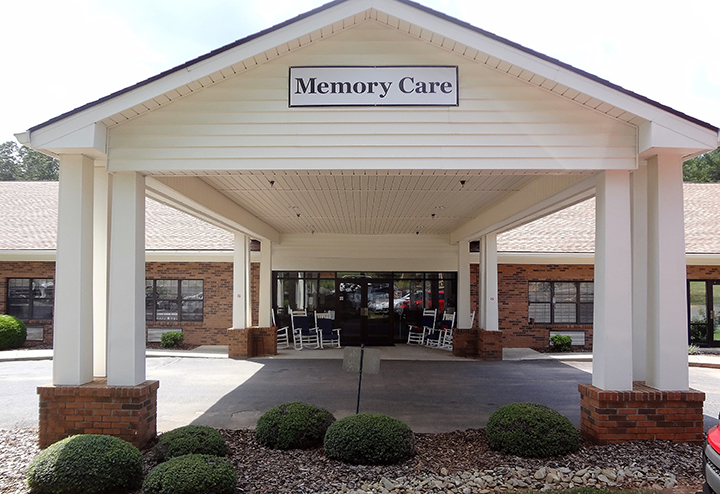Why Households Pick Trusted and Specialist Alzheimers Care Charlotte Facilities
Why Households Pick Trusted and Specialist Alzheimers Care Charlotte Facilities
Blog Article
Professional Tips for Providing Quality Alzheimer's Treatment in the house
Caring for a specific with Alzheimer's disease at home presents one-of-a-kind difficulties that require both understanding and strategic preparation. As we discover these professional suggestions further, it comes to be clear that a thoughtful strategy can considerably influence the quality of life for both the caregiver and the individual receiving treatment.
Understand Alzheimer's Disease
Alzheimer's condition, a dynamic neurodegenerative disorder, profoundly influences cognitive feature and daily living activities. It primarily influences memory, believing, and habits, resulting in a gradual decrease in the capacities essential for independent living. Early signs and symptoms often include lapse of memory, trouble in analytical, and obstacles in completing familiar jobs. As the disease advances, individuals may experience disorientation to time and place, impaired judgment, and adjustments in mood and individuality.
The etiology of Alzheimer's is intricate, entailing the accumulation of amyloid plaques and tau tangles in the brain, which disrupt neuronal communication and result in cell death. Risk elements include age, genes, and way of life selections, with most of cases happening in people over 65. Understanding of these elements is crucial for caregivers, as understanding the problem can promote far better assistance and care techniques.
Additionally, Alzheimer's disease not only influences the specific however likewise has considerable emotional and logistical implications for households. Acknowledging the stages of the disease permits caretakers to expect obstacles and adjust their strategy, making certain that the demands of those impacted are consulted with compassion and understanding. This fundamental understanding is vital for promoting quality treatment in your home.
Establish a Regular
Developing a structured daily regimen can substantially enhance the lifestyle for individuals coping with Alzheimer's illness. Establishing regular patterns helps to lower confusion and anxiousness, supplying a complacency and experience. A daily timetable ought to consist of routine times for dishes, activities, and rest, which can help individuals anticipate what to anticipate throughout the day.
Including easy, acquainted jobs right into the routine can promote a sense of success and freedom. Activities like gardening, food preparation, and even simple home duties can be advantageous. It is important to customize these activities to the individual's capabilities and passions, making sure involvement without disappointment.
Additionally, adaptability within the routine is essential. While consistency is essential, enabling changes based on the individual's mood or energy levels can assist keep a positive environment. Motivate involvement in social interactions, whether through family check outs or neighborhood activities, as these can provide excitement and link.
Enhance Communication Skills
Efficient communication is necessary for keeping purposeful links with individuals dealing with Alzheimer's illness. As cognitive capabilities decrease, conventional conversation may end up being challenging. Caregivers should adjust their communication techniques to foster understanding and link. Alzheimers Care Charlotte.

Active listening is crucial. Program genuine passion by preserving eye contact and responding to look at this site acknowledge their sensations or ideas. Avoid remedying or arguing, as this might bring about stress. Instead, validate their emotions and redirect the conversation gently if needed.
Making use of aesthetic help, such as images or created suggestions, can additionally boost understanding. Urge participation in activities that stimulate discussion, such as thinking back concerning previous occasions or checking out picture cds.
Create a Safe Environment
A supportive atmosphere plays a substantial function in the wellness of individuals with Alzheimer's disease. Developing a risk-free home setting is necessary to minimize risks and enhance the high quality of life for both the private and their caregivers. Begin by assessing the living space for possible dangers. Get rid of stumbling dangers such as loose carpets, electric cords, and mess. Guarantee that pathways are well-lit and clear to avoid falls.
Mount security locks on home windows and doors to avoid wandering, which is an usual worry in Alzheimer's clients. Additionally, take into consideration making use of non-slip mats in bathrooms and mount grab bars for added support. Labeling areas and vital items can assist individuals navigate their environments more conveniently.
Emergency additional hints get in touches with should be clearly uploaded near phones, and a clinical alert system can supply assurance. Think about making use of childproofing measures for dangerous substances and sharp things. Routinely check smoke detectors and carbon monoxide useful site gas alarm systems to guarantee they are functioning. In general, customizing the home setting to the unique needs of the private with Alzheimer's not just advertises safety and security but also motivates self-reliance and convenience.
Seek Support and Resources
Accessing assistance and sources is important for caretakers and individuals facing the challenges of Alzheimer's disease. Caregiving can be overwhelming, both physically and psychologically, and it is necessary for caregivers to seek support to maintain their well-being and provide top quality treatment.

Additionally, discovering respite care choices can afford caregivers much-needed breaks, enabling them to lower and recharge exhaustion. This may consist of grown-up day programs or at home care solutions. Monetary support programs might additionally be available to help counter the expenses of care.

Final Thought
In summary, giving high quality Alzheimer's care in your home demands a diverse strategy. Understanding the complexities of the condition, developing a structured routine, enhancing interaction skills, producing a secure setting, and looking for support from readily available resources collectively add to boosted caregiving experiences. Executing these strategies not only cultivates a sense of self-reliance and accomplishment for individuals with Alzheimer's yet also reduces caretaker tension, ultimately enhancing the top quality of life for both caretakers and those they support.
Caring for a specific with Alzheimer's illness at home presents one-of-a-kind challenges that need both understanding and calculated preparation.In addition, Alzheimer's illness not just impacts the individual however also has substantial psychological and logistical effects for family members.Creating a structured day-to-day routine can significantly improve the top quality of life for individuals living with Alzheimer's disease.Efficient communication is vital for maintaining meaningful connections with individuals living with Alzheimer's disease. Alzheimers Care Charlotte. Applying these approaches not only cultivates a sense of freedom and achievement for people with Alzheimer's however additionally alleviates caregiver anxiety, ultimately enhancing the top quality of life for both caregivers and those they support
Report this page